The growing significance of sachet water in Ghana — the machine-sealed 500ml plastic bags of drinking water, known in local parlance as “pure water” — as a primary source of drinking water for households is important. It has a major impact towards the achievement of universal access to improved drinking water in the country (Sustainable Development Goal, or SDG, 6) and should not be under-emphasized. Nonetheless, its end product of plastic pollutants poses an environmental menace to Ghana’s ecosystems and requires a balanced solution to curb the dilemma of water scarcity and ecological stewardship. Though not sustainable, the increased production and consumption of sachet water as a primary source of drinking water is an inescapable reality in rural and urban communities of Ghana today, irrespective of households’ differential experiences with accessing this product.
Granted, with surging urbanization, it is unlikely that Ghana will meet the required capacity to provide universal access to safe drinking water by relying on its piped water supply network (Moulds et al., 2022), as envisaged by SDG 6. The emergent dominance of sachet water in Ghana’s water supply landscape represents an insoluble dilemma of plastic pollution and access to safe drinking water to address the challenge of water scarcity, especially in urban communities where 51.5% of households depend on it as a safe drinking water source (GSS, 2022). It further inhibits efforts to establish the principle of water as a public good and providing access to safe and affordable drinking water as a public service.
In Ghana’s capital city, Accra, 78% of households use sachet water as a primary drinking water source (Moulds et al., 2022: 14). The ubiquity of the product in Accra and its growing presence across the country suggest that sachet water is an indispensable part of Ghana’s water landscape (ibid). As Justin Stoler (2017) posits, the ability of many West African states, including Ghana, to achieve universal access to safe drinking water depends on their willingness to incorporate the sachet water industry into an integrated drinking water platform. The significant contribution of the sachet water industry toward achieving SDG 6 is apparent. The earlier the government recognizes this and embraces a more holistic approach towards addressing the utility of sachet water and its nuisance as a plastic pollutant to the environment, the better.
There needs to be a stress on the quagmire and potentially conflicting public policy interventions to address the challenges of environmental degradation, preservation of water bodies, and the scourge of plastic pollution as an ecological and sanitation problem in Ghana. Against the background of the destruction of water bodies and the ecosystem through indiscriminate surface mining activities, popularly known as “Galamsey”, the odds are against the government finding a way out of this conundrum. The proliferation of bottled and sachet water manufacturing companies in the country adds to the problem, coupled with the general households’ preference for this product over pipe-borne water, which is perceived to be contaminated. This further compounds the issues and must be addressed effectively. Nonetheless, the official public lamentation of households’ preference for sachet water as a safe drinking water source speaks to the counterintuitive narrative of the denial of the polluted state of pipe-borne water. It is unacceptable.
Pipe-borne water is unsafe in Ghana
The argument that pipe-borne water is the safest source of drinking water in Ghana is risible. According to UNICEF, “seventy-six per cent of Ghanaian households are at risk of drinking water contaminated with faecal matter (UNICEF, 2023)”. Even more worrying is that “only four per cent of households in Ghana treat water suitably before drinking and ninety-three per cent of households do not treat water at all” (ibid). These facts reveal the limitations of the Minister for Sanitation and Water Resources’ recent public denial of the country’s contaminated state of pipe-borne water, arguing that it is the best source of drinking water. She asserts that reliance on the sachet water is a personal choice Ghanaians make, as if it is a matter of choice rather than necessity.
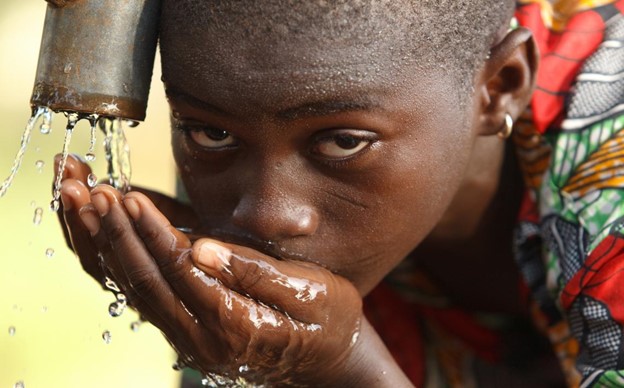
It cannot be true that the pipe-borne water produced and delivered to Ghanaian homes by the Ghana Water Company Limited (GWCL) is the safest source of drinking water when, contrary to the Minister’s assertion, the 2021 population and housing census data report showed that 51.5% of urban households in the country depended on sachet water, while 33.6% of rural families survive on borehole/tube wells as a source of drinking water; compared to the 33.7% of urban families depending on pipe-borne water and 28.8% of rural households using same as their drinking water sources (GSS, 2022). The growing faith in and preference for the general population for less sustainable alternative sources of drinking water to pipe-borne water points to a critical failure of the water resource governance system in the country. This requires critical thinking to build back better and find a lasting solution to impending water scarcity and the ecological menace of the pollution that results from the mass production of plastics in the booming sachet and bottled water industry.
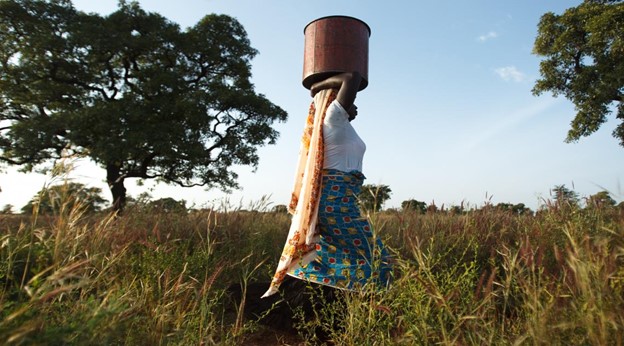
The phenomenon of water scarcity and access to safe drinking water as a life-saving resource is a significant concern for human survival and should be recognized as such. The politicization of this glaring problem of the contaminated state of pipe-borne water in the country is both baffling and worrisome. Access to safe drinking water is central to the sustainable development aspirations of Ghanaian households, and it is crucial it is for public health, socio-economic development, and healthy ecosystem development (UN, 2023).
The challenge of the unsustainability of sachet water
Indeed, reliance only on sachet water as a source of safe drinking water is unsustainable, but clearly depicts a much broader problem of the deplorable state of affairs in the wake of water scarcity, the contaminated state of pipe-borne water, and water system governance paralysis in the country. A few decades ago, access to pipe-borne water significantly meant access to clean water and governments in West Africa prided themselves on delivering access to pipe-borne water in homes and businesses as remarkable achievements worth commendation. Today, access to pipe-borne water in Ghana means nothing more than another contaminated water source. The worst is that plastic bottled and sachet water, regardless of its consequential end product of a disposable pollutant in our environment, is perceived as a safe alternative water source in our homes compared to tap water.
How did we end up here? The answer to this question is plausible: pipe-borne water is not a reliable source of safe drinking water anymore.
The mass production of plastics and pollution
The worrisome media report of a booming global plastic water industry with over one million bottles of water sold every minute worldwide in an industry that shows no sign of slowing down speaks to a catastrophic consequence of pervasive pollution of our ecosystem. The situation in Ghana is the same. Talk less about what the increasing patronage of packaged water products does to our psyche and the further emphasis on these sales doubling by 2030, according to a report by the United Nations University Institute for Water, Environment and Health (UN, 2023).
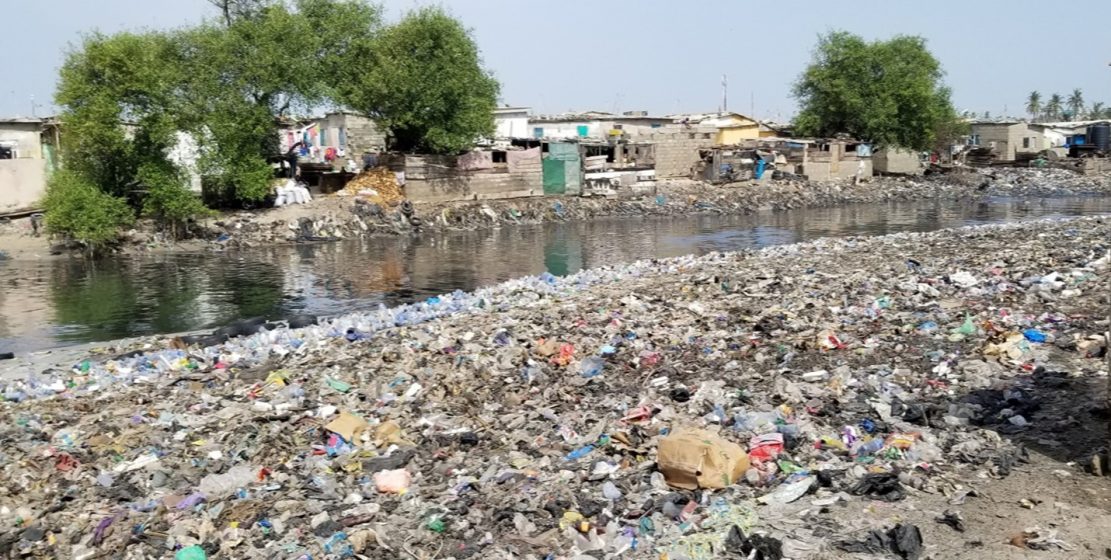
This calls for our attention to environmental stewardship, considering the threats mass production of single-use plastic poses to our environments, such as water quality degradation, blocked drains, localized flooding, and ecological degradation (Moulds et al., 2022). Wardrop et al. (2017) estimate that Ghana produced 14,000 tons of plastic waste in 2015, consuming 8.2 billion packaged water (ibid: 17). Given the current growth of the sachet water industry, we must activate our commitment to environmental stewardship, to protecting the environment and hold in check the desire to profit from a booming industry while recognizing the need not to undermine public water utility, the traditional notion of water as a fundamental human right, and establishing a system of water governance which views water as a public good (Moulds et al., 2022: 17).
Common sense solutions are valuable
Finding balanced solutions to the dilemma of increased plastic waste generated from mass production and consumption of sachet water and the utility of the product as an alternative and complementary choice of safe drinking water source requires a holistic view and approach to the compounded issues enumerated above.
Essentially, I subscribe to the idea of Gillian Tett (2021) that finding solutions for public sector challenges requires a much broader view of the problems than relying on hard science and one set of limited intellectual tools to solve them. Beyond the reliance on hard science and big data for effective responses to fast-moving challenges, such as lack of access to safe drinking water and the plastic pollution menace, it is crucial to recognize the significance of what she calls the “soft” science to understand human behaviour and culture. Tett (2021) posits that it is a profound mistake to consider relying on one set of intellectual tools deployed with tunnel vision to solve public policy problems. A lateral vision is needed to appreciate the broader human context and how elements outside the model of the extensive data set or scientific trial could affect what is happening (ibid).
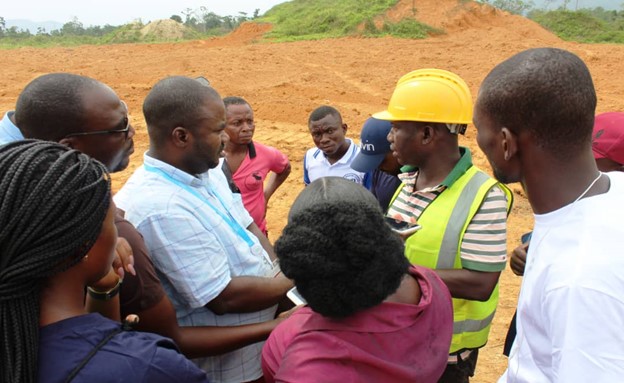
Drawing insights from her postulation gives me the optimism to grasp the possible solution to the paradox of “faith in sachet water” in Ghana. Building partnerships with the private sector stakeholders, civil society groups, and the local communities and resorting to commonsense approaches, such as intensive plastic reuse, recycling, and innovative use of plastics for household needs, such as “trashy bags” initiatives, would go a long way to address the environmental challenge and re-establish public confidence in the water and sanitation management systems in the country.
Likewise, our society’s imprudence of a preference for a source of life-threatening breeding pollutants that endangers biodiversity, aquaculture, and animal species with a bearing on our survival as humans. Such a call for a diverse spectrum of commonsense solutions and efforts at building resilient partnerships helps create local coping mechanisms to address the myriad problems crippling the water governance system of the country. It will inure to the advantage of the government to move from denialism to making efforts to renew public confidence in tap water quality as a priority to promote water security. This is not aberrant with the SDG 6 advocacy for strengthening local community participation in water and sanitation management. Such participatory water governance mechanisms offer the best chance to re-establish the principle of providing water as a public service (Moulds et al., 2022: 18).
Ibrahim Wallee
Accra
References:
Moulds, S., Chan, A., Tetteh, J., Bixby, H., Owusu, G., Agyei-Mensah, S., . . . Templeton, M. (2022). Sachet Water in Ghana: A spatiotemporal analysis of the recent upward trend in consumption and its relationship with changing household characteristics, 2010-2017. PLOS ONE, 17(1), 1-22.
Stoler, J. (2012, December). Improved but unsustainable: accounting for sachet water in post-2015 goals for global safe water. Journal for Tropical Medicine and International Health, 17(12), 1506-1508.
Tett, G. (2021, December ). Listening to Social Silence: Anthropology is vital for building back better. Finance and Development, 37-39.
- (2023, April 8). Retrieved from UNICEF Ghana: https://www.unicef.org/ghana/water#:~:text=Seventy%20six%20per%20cent%20of,not%20treat%20water%20at%20all.
Wardrop, N., Dzodzomenyo, M., Aryeetey, G., Hill, A., Bain, R., & Wright, J. (2017). Estimation of packaged water consumption and associated plastic waste production from household budget surveys. Environmental Research Letters, 12(7). doi:10.1088/1748-9326/aa751f
Zurek, K. (2022, February 24). Sachet water main source of drinking water in Ghana – Census Report. Accra, Greater Accra, Ghana. Retrieved April 9, 2023, from https://www.graphic.com.gh/news/general-news/sachet-water-main-source-of-drinking-water-in-ghana-census-report.html#:~:text=The%20census%20data%20also%20found,was%20used%20by%2028.8%25%20of

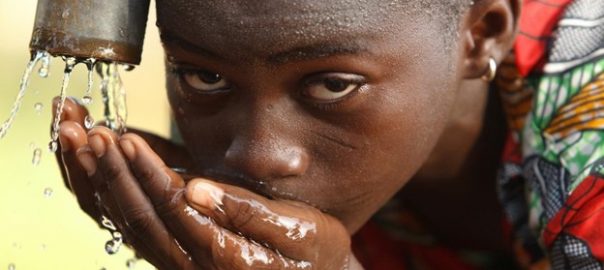

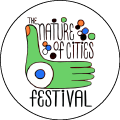
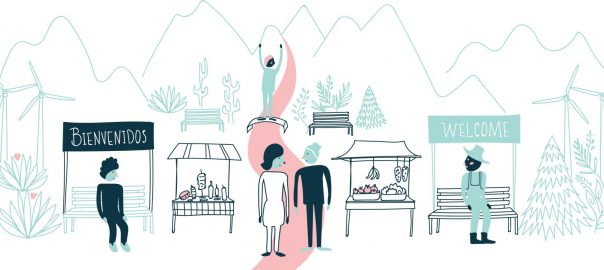
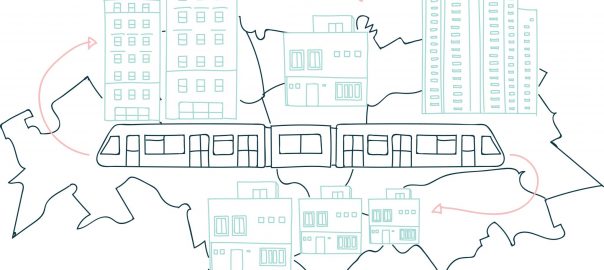
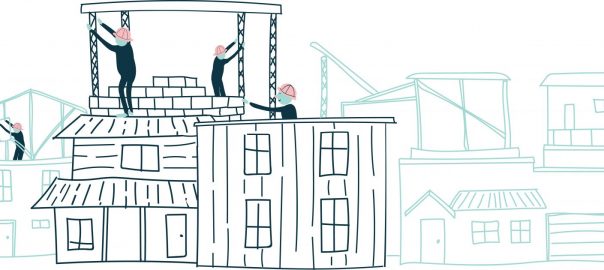
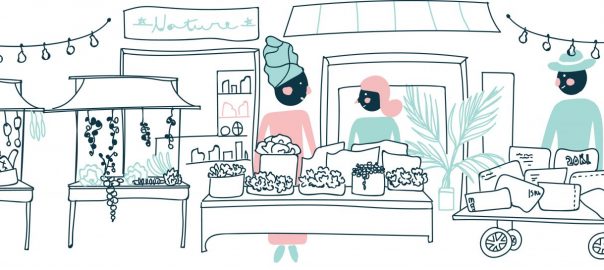

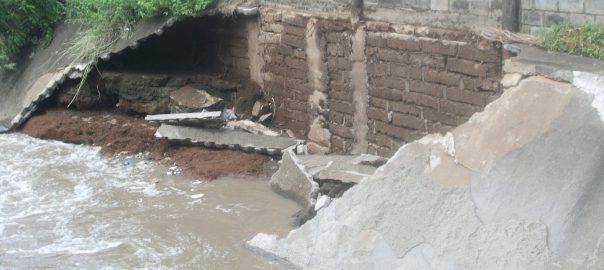


Thank you for this insighting article. Indeed, Ghana has a probelm with access to safe drinking water. The reliance on sachet water is still growing and as you intimated the better the government recognise this fact (sachet water is not a choice) the better. This realisation should also culminate in government in putting measures to assess the situation and put in measures. But the widespread of the use of sachet water to me is not a problem because it has made “clean water” accessible even though the affordability is questionable. The use of sachet water should be a choice but in Ghana its not because of pollutated water we receive from the GWCL and the consequence of galamsey on our water bodies. ALso, the plastic pollution emanating from the sachet water business is a problem that needs to be tackled with tacts and in an integrated approach.